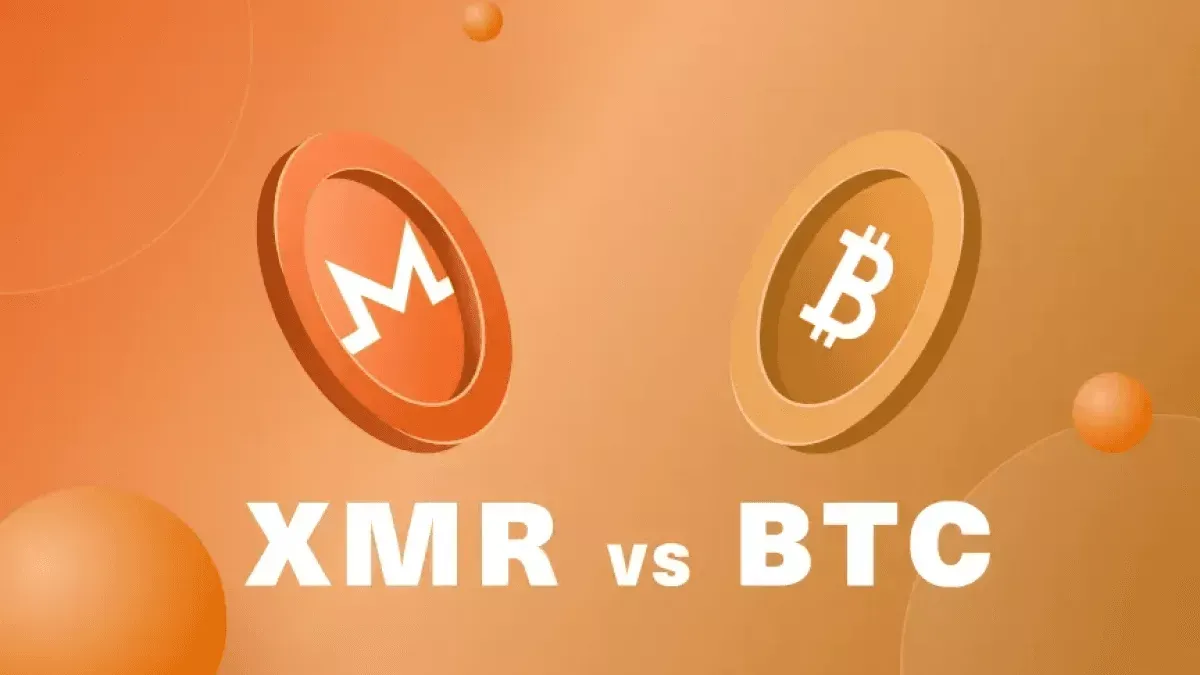Bitcoin (BTC), the first cryptocurrency ever created, continues to be the most popular and valuable digital asset, with its influence driving widespread interest in the crypto market. Recent developments like the potential approval of a Bitcoin ETF are drawing more investors, while key events such as the upcoming Bitcoin halving are expected to impact the Bitcoin price today and long-term Bitcoin value by reducing the supply of new BTC entering circulation. Investors closely monitor Bitcoin news and track the price of Bitcoin in Bitcoin USD to make informed decisions, as many choose to buy Bitcoin as a hedge or investment.
Meanwhile, other cryptocurrencies offer unique advantages, with Monero (XMR) standing out for its strong privacy features, making it a favored option for users seeking anonymity. Monero hides transaction details, such as sender, receiver, and amount, unlike Bitcoin’s transparent ledger. For those interested, it’s possible to buy Monero on various exchanges or through peer-to-peer platforms like Local Monero. Investors also keep a close eye on the Monero price and secure their holdings using a reliable Monero wallet to ensure their assets are safe and their transactions remain private.
How does Bitcoin work?
Bitcoin was introduced in 2009 as a decentralized digital currency created by an unknown person or group of people under the alias Satoshi Nakamoto. It is a peer-to-peer network that enables users to make direct transactions without the need for intermediaries. All Bitcoin transactions are recorded on a public ledger known as the blockchain, allowing for transparency and auditability.
How does Monero work?
Monero, on the other hand, was launched in 2014 and puts a heavy emphasis on privacy, anonymity, and fungibility. While Bitcoin’s public ledger records all transactions for everyone to see, Monero obscures these details to protect users’ privacy. The sender, recipient, and amount involved in a Monero transaction are all kept confidential.
Comparison: Privacy
The key difference between Bitcoin and Monero lies in their approach to privacy. Bitcoin transactions are pseudonymous, not anonymous. Bitcoin addresses aren’t directly linked to users’ identities, but the public nature of the blockchain allows for the potential tracing of transactions back to their participants. If a Bitcoin address is associated with a user’s identity, all transactions involving that address are visible. Monero, on the other hand, uses various technologies, such as ring signatures, stealth addresses, and Ring Confidential Transactions (RingCT), to obscure the sender, receiver, and amount of every transaction. This makes it nearly impossible to link transactions back to a user, providing a high level of privacy that is not present in Bitcoin.
Comparison: Scalability and Adoption
Scalability and adoption are two other important factors when comparing cryptocurrencies. Bitcoin currently leads in these areas. Bitcoin’s blockchain is more extensive, and the currency is accepted by many merchants worldwide. Bitcoin’s transaction speed is also higher, although this can come with higher transaction fees. Monero’s privacy features make its transactions larger and slower, which can impact scalability. Moreover, its focus on privacy has led to controversy and regulatory scrutiny, which has somewhat hindered widespread adoption.
Comparison: Mining and Consensus
- How to mine Bitcoin (BTC)?: Bitcoin and Monero use different consensus mechanisms and have different attitudes towards mining. Bitcoin uses the Proof of Work (PoW) consensus mechanism, and over time, mining has become concentrated among a small number of powerful miners. This has led to concerns about centralization and energy consumption.
- How to mine Monero (XMR)?: Monero also uses a PoW consensus mechanism, but it’s designed to be resistant to Application-Specific Integrated Circuits (ASICs), which are specialized hardware used for Bitcoin mining. This makes Monero mining more accessible to individuals, potentially resulting in a more decentralized network.
Conclusion
Bitcoin and Monero serve different purposes and appeal to different users. Bitcoin, being the first and most well-known cryptocurrency, is widely accepted and has a high degree of liquidity. Its open, transparent ledger is seen as a strength by those who value auditability. Monero, however, offers privacy and anonymity not found in Bitcoin. Its focus on ASIC resistance could also appeal to those concerned about the centralization of mining power in the Bitcoin network. Choosing between Bitcoin and Monero—or any other cryptocurrencies—largely depends on a user’s specific needs and the attributes they value most in a digital currency. Whether one is better than the other is subjective, depending on the importance of privacy, acceptance, and decentralization to the individual user.







